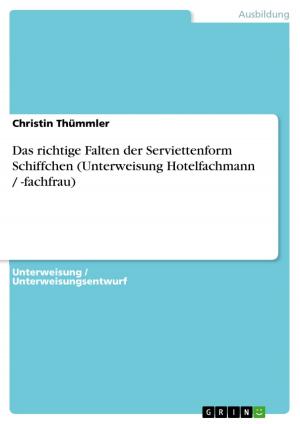The Truth Behind Errors of Reasoning. Cognitive Fallacies as a Matter of Conceptual Coherency
Nonfiction, Health & Well Being, Psychology, Cognitive Psychology| Author: | Patrick Kühnel | ISBN: | 9783656984870 |
| Publisher: | GRIN Verlag | Publication: | July 26, 2016 |
| Imprint: | GRIN Verlag | Language: | English |
| Author: | Patrick Kühnel |
| ISBN: | 9783656984870 |
| Publisher: | GRIN Verlag |
| Publication: | July 26, 2016 |
| Imprint: | GRIN Verlag |
| Language: | English |
Scientific Essay from the year 2015 in the subject Psychology - Cognition, , language: English, abstract: Traditionally, research on cognitive fallacies has pursued a normative approach, mainly aiming at identifying the main influences that lead to erroneous response behavior such as, for example, belief bias and confirmation bias, both of which have been shown to correlate with strategies of argumentation and motivational factors. Although it seems natural to view cognitive fallacies as a deficient form of reasoning or an effect of misplaced 'gut instinct', there is good reason to assume that so-called cognitive fallacies are actually a natural side effect of the attempt of the human mind to create a coherent scenario when the available input is ambiguous enough to allow for the construction of various conceptual metaphors to serve as a guiding mindset for the process of reasoning. In this paper I will reexamine previous explanations in the field of cognitive fallacies in order to shed new light on the psychological mechanisms behind erroneous response behavior by further developing ideas from metaphor theory (cf. Lakoff, /Núñez 2000) and mental space theory (cf. Fauconnier 1985).
Scientific Essay from the year 2015 in the subject Psychology - Cognition, , language: English, abstract: Traditionally, research on cognitive fallacies has pursued a normative approach, mainly aiming at identifying the main influences that lead to erroneous response behavior such as, for example, belief bias and confirmation bias, both of which have been shown to correlate with strategies of argumentation and motivational factors. Although it seems natural to view cognitive fallacies as a deficient form of reasoning or an effect of misplaced 'gut instinct', there is good reason to assume that so-called cognitive fallacies are actually a natural side effect of the attempt of the human mind to create a coherent scenario when the available input is ambiguous enough to allow for the construction of various conceptual metaphors to serve as a guiding mindset for the process of reasoning. In this paper I will reexamine previous explanations in the field of cognitive fallacies in order to shed new light on the psychological mechanisms behind erroneous response behavior by further developing ideas from metaphor theory (cf. Lakoff, /Núñez 2000) and mental space theory (cf. Fauconnier 1985).















